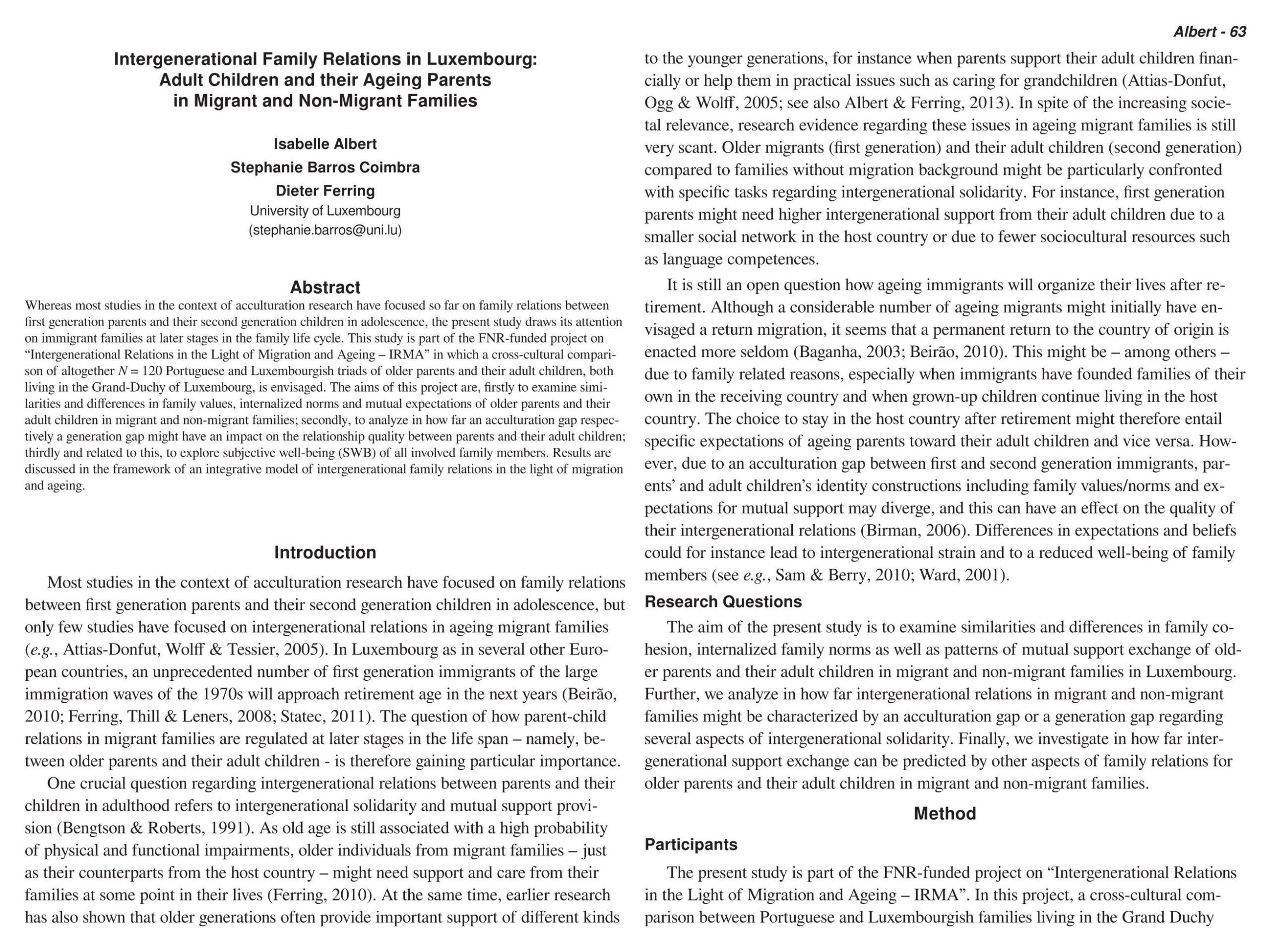Whereas most studies in the context of acculturation research have focused so far on family relations between first generation parents and their second generation children in adolescence, the present study draws its attention on immigrant families at later stages in the family life cycle. This study is part of the FNR-funded project on “Intergenerational Relations in the Light of Migration and Ageing – IRMA” in which a cross-cultural comparison of altogether N = 120 Portuguese and Luxembourgish triads of older parents and their adult children, both living in the Grand-Duchy of Luxembourg, is envisaged. The aims of this project are, firstly to examine similarities and differences in family values, internalized norms and mutual expectations of older parents and their adult children in migrant and non-migrant families; secondly, to analyze in how far an acculturation gap respectively a generation gap might have an impact on the relationship quality between parents and their adult children; thirdly and related to this, to explore subjective well-being (SWB) of all involved family members. Results are discussed in the framework of an integrative model of intergenerational family relations in the light of migration and ageing.
Intergenerational family relations in Luxembourg: Adult children and their ageing parents in migrant and non-migrant families
Zitiervorschlag
Albert, I., Barros Coimbra, S. & Ferring, D. (2016). Intergenerational family relations in Luxembourg: Adult children and their ageing parents in migrant and non-migrant families. In C. Roland-Lévy, P. Denoux, B. Voyer, P. Boski, W. Gabrenya, A. K. Rhode & J. Lemoine (Hrsg.), Unity, diversity and culture: Research and scholarship selected from the 22nd Congress of the International Association for Cross-Cultural Psychology (S. 62–69). Melbourne, Florida USA: International Association for Cross-Cultural Psychology (IACCP).


